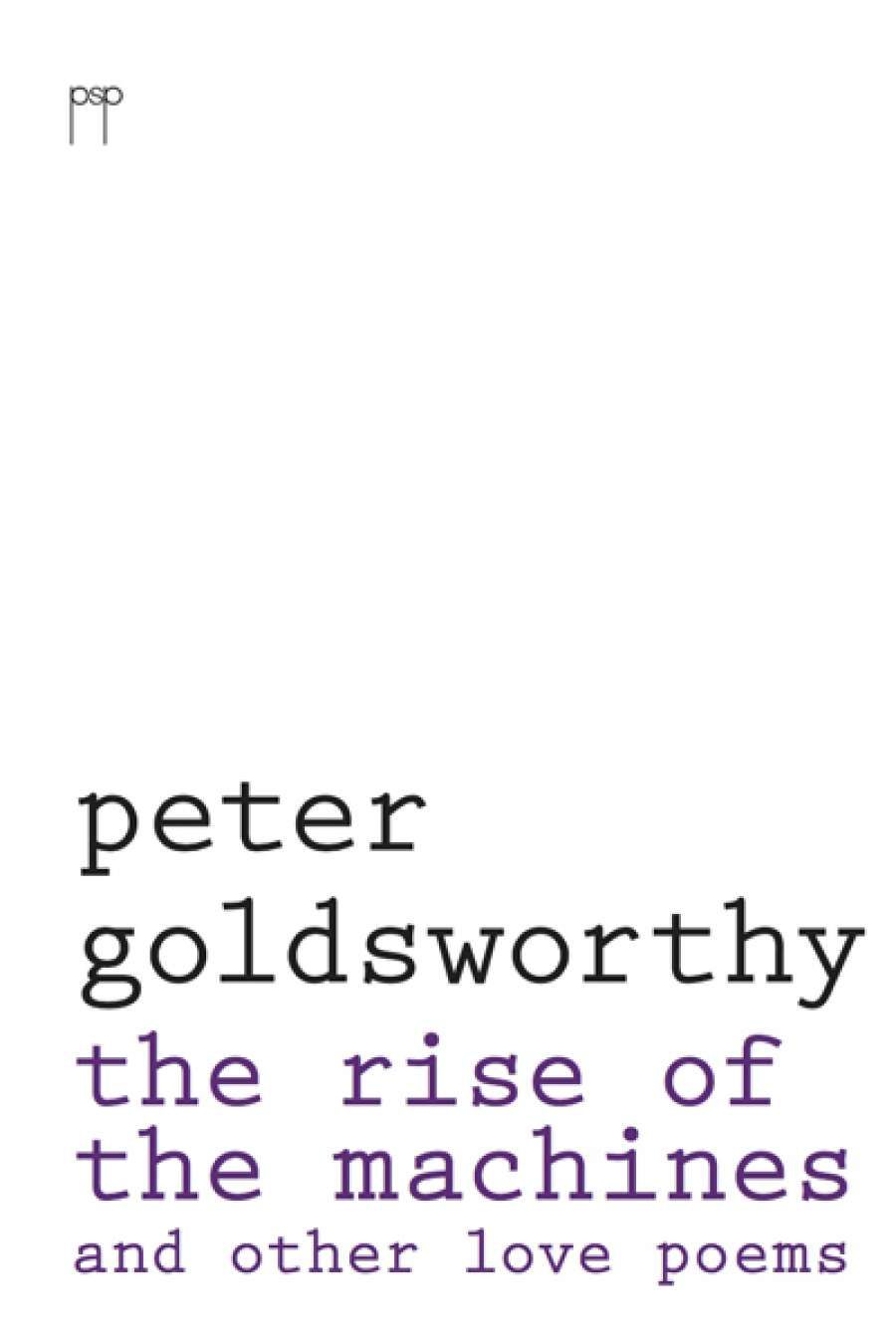
- Free Article: No
- Contents Category: Poetry
- Custom Article Title: Philip Harvey reviews 'The Rise of the Machines and other love poems' by Peter Goldsworthy
- Review Article: Yes
- Online Only: No
- Book 1 Title: The Rise of the Machines and other love poems
- Book 1 Biblio: Pitt Street Poetry, $28 pb, 72 pp, 9781922080547
'Quintets for Twiggy' was the first poem by Goldsworthy I ever read. A response to Les Murray's ecstatic encomium on sprawl, it was a parody in praise of the thin. Counter poems are common in his work, but this early poem was also one of self-disclosure. It revealed his belief in the virtues of slim, his lean towards the lean. His verse shapes up this way on the page, as does his line of argument and his syntactic shifts.
A delightful set of counter poems is 'Decalogue', where Goldsworthy seems almost to treat the commandments in Exodus 20 as a set of short poems deserving his closer attention. His ear for the vernacular, the twists and turns of daily speech, is trusting and rewarding. Poetry usually has an element of the child's-eye view of adult circumstance, and here the poet's ten-year-old self is appreciated through grown-up memory. 'Honour Thy Father / and Mother? / Too easy. // And so say most of us, / not necessarily / in that order.'
Admitting that 'by mid-teens / I'd forgotten one or two, / And broken the best of the rest', the poet nevertheless continues to live with the paradox of a world in which actions do have consequences and laws may be there for a reason. His ten-year-old self explains more about modern Australia than ancient Israel:
And what the fuck
was adultery?
No adult would ever
commit
to an answer,
even though
I was always
asking for it.
Thou shalt never
grow up? If so,
the grown-ups were all
as guilty as sin.
 Peter Goldsworthy
Peter Goldsworthy
Likewise, in his Arian meditations 'Son to Father: Easter Poems', the poet asks his own personal questions about existence, while toying with theological paradoxes. Trinitarians will observe the lack of relationship between the three persons, roll their eyes at the mention of that old chestnut about the shape of our world, but perhaps smile at Goldsworthy's concluding jab at Voltaire: 'Ghostly Holy Father, haunting / Your thingless heaven, / If this world did not exist / You would have to invent it.'
The title sequence, more than any other part of this book, exhibits the quandary of wit, which is how to plumb the deep and meaningful while still fishing for a laugh. Like the rest of us, Goldsworthy is highly conscious of how we sentient feeling beings today co-exist with a highly sophisticated digital and machine world over which we have little control and no choice. His mockumentary of different encounters with technology, each more symbiotic than the last, is presented with an amused, and discomforting, dispassion. The body may be described using machine metaphors, but their half-life is brief. Inviting your lover to go through the motions can be disconcerting when you are being so literally mechanical.
A poet with an alchemical name like Goldsworthy will focus on how leaden words are turned into something brighter and more valuable. If asked to explain the pleasures of reading this poet, I would say his pragmatic imagism ('Aphrodite / rises, legless and headless, / and I am breathless, / the goddess wears / your nakedness exactly'), his proverbial inversions, and his intellectual fertility. Asked to identify one unifying theme, I would suggest all his poetry is enthralled with the nature of relationships, whether it be with his girlfriend, his colleagues, his body, the uncanny objects of this world, or this world itself, floating in space: 'Our Earthern Dish is seven parts water, / one part China, and a tiny bit japanned.' It is this last attribute, relationship, that keeps us on side as we identify with familiar things, while yet prepared for the unfamiliar. As he puts it in 'Orpheus. Eurydice. Schrödinger' 'I trail a hand behind / as if by accident, / a periscope of touch. / Doubt slows me in the hope / a feather of breath / might brush my neck; / but if thoughts are deeds / you are gone already, / or never there, or both / and I remain / yours, paradoxically.'


Comments powered by CComment